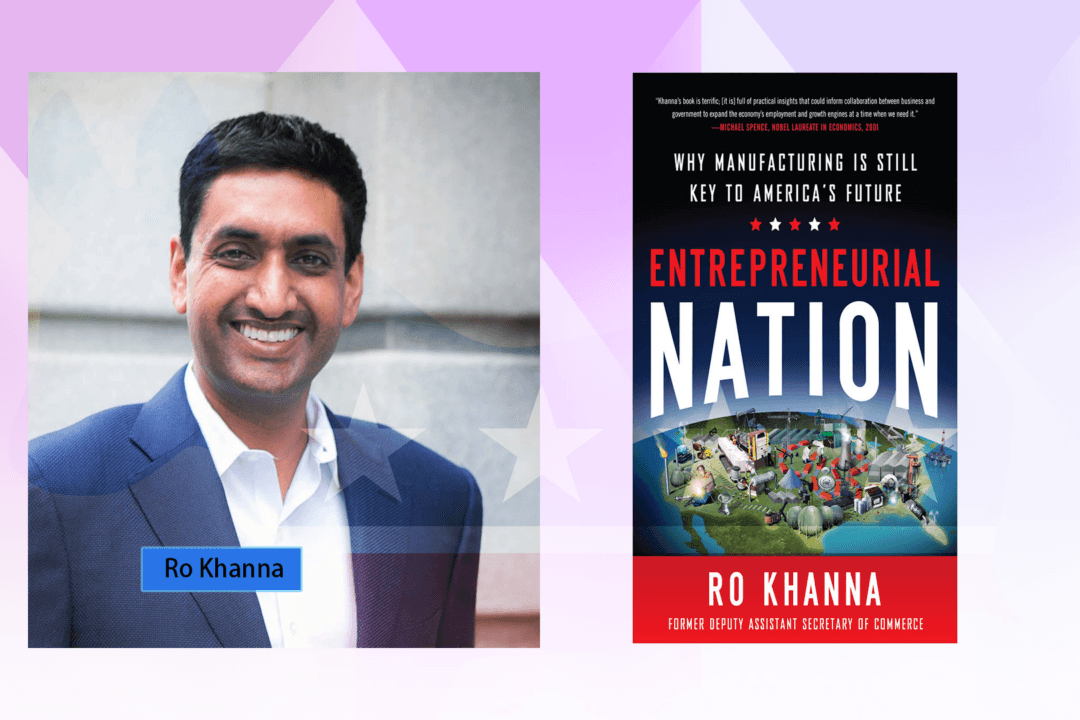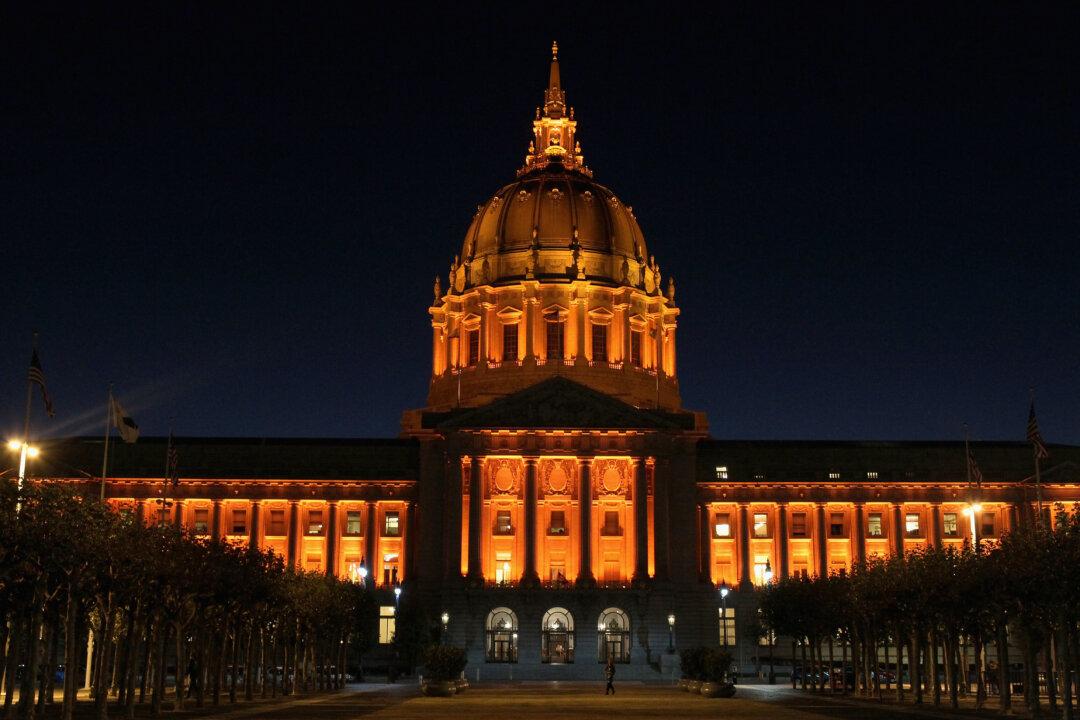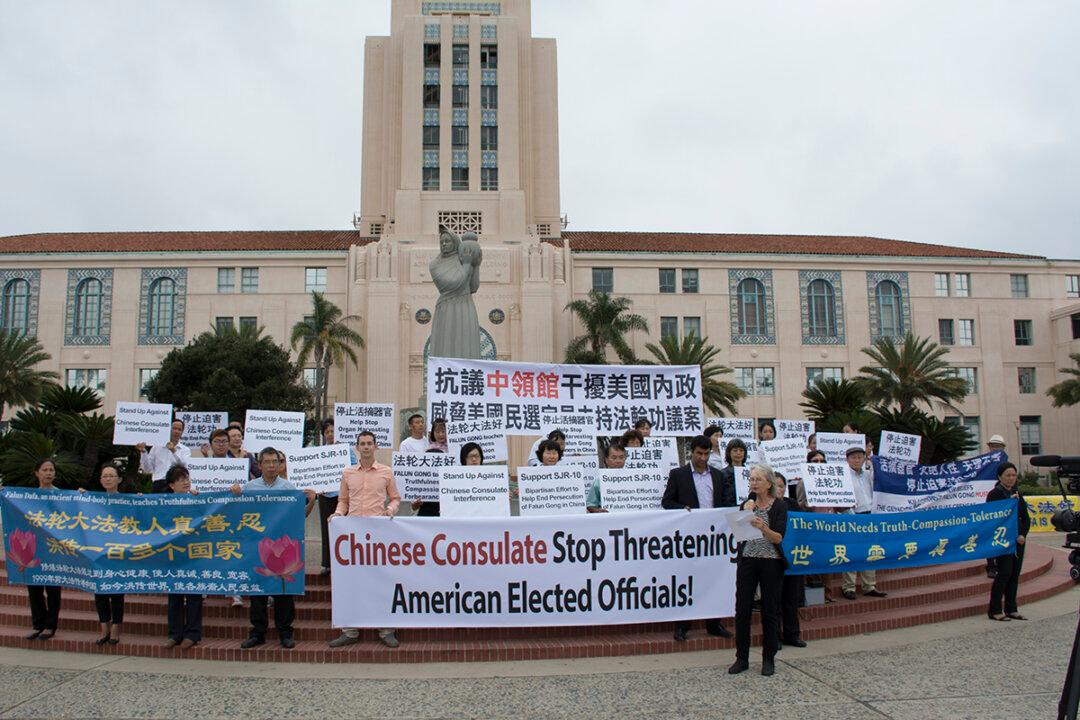SUNNYVALE—Epoch Times sat down with Ro Khanna to talk about his candidacy for the 17th Congressional District. The Stanford lecturer, attorney, and author of “Entrepreneurial Nation: Why Manufacturing Is Still Key to America’s Future” is once again in a hot race with incumbent Rep. Mike Honda. In 2014, Honda held onto his seat by fewer than 5,000 votes. Facing off again in November, Khanna hopes this will be his year.
Epoch Times: You have a very impressive résumé, given your relatively young age, but there is an old Chinese saying, “Ginger gets spicier with age.” Mike Honda is almost twice your senior and has 16 years of experience as a member of Congress. What advantages do you have over him?
Ro Khanna: Well, I think one of the biggest challenges we face today is education. How are we going to educate the next generation? What skills are they going to need, and how will they get those skills to get jobs in the 21st century? I think I have more relevant experience for today’s times on those issues than he does.
Epoch Times: You and Congressman Honda are both Democrats, both Asian-Americans, and you’ve both been teachers. What do you think is the biggest political difference between the two of you?
Mr. Khanna: The biggest difference is transparency and ethics. Mike Honda is undergoing a federal investigation for giving political favors to his donors. On the other hand, I won’t take any PAC money, lobbyist money, or corporate money. I took a pledge as a candidate and when I get to Congress to not take any PAC or lobbyist money. I only take money from the people. We need a new generation of leaders in Congress who are transparent, open, and honest.
He also hasn’t been that effective. In 16 years he’s only passed one bill—that was to rename the post office. He’s also lost a lot of clout in Washington; President Obama withdrew his endorsement of him a couple of months ago.
I really believe this valley needs a new voice. One that isn’t going to be caught up in all of this mess, someone who will be on the right committees and be able to bring resources back to us.
Epoch Times: In your previous campaign mailer you said that “Mike Honda is ‘big taxes and big spending.’” Some people found this strange because that is an accusation Republicans usually make against Democrats. Could you please explain?
Mr. Khanna: Well, I’m a strong Democrat—I worked for President Obama—but I also teach economics at Stanford and wrote the book “Entrepreneurial Nation.” I’m on the side of entrepreneurs and small businesses. I think we need to simplify regulation and not put high taxes on small businesses so they can create jobs.
Epoch Times: Congressman Honda’s campaign called you the “tool of billionaires, right-wing activists, and corporate interests.” How do you respond to that?
Mr. Khanna: As the Mercury News and other newspapers have pointed out, those are desperate tactics that simply aren’t true. I grew up in a middle-class family; I went to public schools. I’m still paying off my student loans.
I have the support of grassroots leaders throughout this district. I’m the one who doesn’t take any PAC money, corporate money, or lobbyist money, while he is in a huge ethics scandal for giving favors to wealthy donors. He’s attempting to distract from that with these arguments against me. I believe voters will see through it, though.
Epoch Times: Many candidates running for Congress have pledged to work with both sides of the aisle and make a difference when elected, but many fail to do so. Why do you think you will be different?
Mr. Khanna: We are starting to see a change with this. Eric Swalwell, a young man who was elected in 2012, is part of a group of 40 young freshman and sophomore Congress people who make a point of bipartisanship, of working together to get things done. Now, 40 out of 435, that’s only 10 percent, but as we get a new generation of people in Congress, I think more people will join this bipartisan group and stop holding onto this partisan warfare.
Epoch Times: There are those who believe we need to allow high-density commercial and residential construction to curb the rising cost of housing. What is your opinion?
Mr. Khanna: I’m concerned about it; I’m not for the high density. We can’t have increased traffic, overcrowding of schools, and reduced property values in our community. We have to develop in a way that is sensible. Until we have a plan for public transportation, a plan for better schools with less crowding, I don’t think we should have rapid development. That’s why I don’t take a dollar from any special interest group; I’m not beholden to any of these developers. I will work for the people and ensure that we’re not overcrowding our schools, overcrowding our roads.
Epoch Times: There have been talks about the city of San Jose implementing rent control. Do you think that’s a good solution to skyrocketing rents?
Mr. Khanna: I don’t think that’s the best way to deal with high rents. There’s no doubt that the cost of living is very high; it’s very tough to afford a place here. But rent control doesn’t work. It ends up pricing people out. We still won’t have enough supply, and the amount of housing available will diminish. The problem will become worse. Richard Nixon tried pricing and rent controls in the 1970s and they don’t work. It’s a bad idea.
We need to create places of affordable housing near public transportation, do something that will make the problem of high rents better instead of worse. When I am in Congress, I will fight to bring back funding to create housing that’s near public transportation. We also need more public transportation—not just extending BART to San Jose—transportation to places like Sunnyvale, Cupertino, and Santa Clara, transportation to where the jobs are.
Epoch Times: You have publicly said that you support small and medium businesses, but you also support the state law raising the minimum wage to $15 an hour. Many small-business owners say they may be forced to close their doors because of this increase. How do you feel about that?
Mr. Khanna: I think it’s a fair point, and I agree that we can’t be burdening small businesses.
We need to have some carve-outs for small and medium businesses that can absorb that cost. I’m all for Wal-Mart, Kmart, and Costco paying $15 an hour; they can afford it. But when it comes to a local Chinese or Indian restaurant, a local dry cleaner, that’s when we need something to step in for small businesses. One solution is that government pays the difference with an income tax credit.
Epoch Times: You teach at two private universities, Stanford and the University of Santa Clara. What is your take on state legislation like AB-1726, and SCA-5 that would impact the admissions of public universities?
Mr. Khanna: I’m opposed to them. We can’t have quotas. I’m very sympathetic that we need to give more African and Latino students opportunities to get an education, but we can’t have quotas against Asian people. We need to invest in education in K–12, to invest in creating good teachers. We need more funding for computer science, music, art; for programs that give all of our kids the best education. That’s ultimately a much better solution.
Epoch Times: You are the author of the book “Entrepreneurial Nation: Why Manufacturing Is Still Key to America’s Future.” Would you please clarify what kind of manufacturing you’re talking about?
Mr. Khanna: Manufacturing that uses cutting-edge technology, high productivity, and environmentally friendly practices: These industries should be grown. We need to look at the businesses that are creating jobs, innovating, and developing environmentally friendly technology and figure out how to create more of them around the United States.
Epoch Times: Last year the United States imported $481 billion worth of goods from China, but only exported $116 billion, resulting in a trade deficit of $356 billion. How would you address the trade deficit with China?
Mr. Khanna: We have to invest more in this country, invest in alternative energy such as solar, wind, and geothermal, invest more in science and technology so we can build advanced manufacturing here. We have to make sure that we have the big industries, that we’re competitive. That’s how we compete in the global economy.
Epoch Times: What is your take on the recent intellectual property disputes between Apple and some Chinese companies? How would you protect intellectual property rights in the United States?
Mr. Khanna: We need to make sure that we’re protecting intellectual property, but do so in a way that uses dialogue to resolve disputes constructively. I disagree with some of the politicians who engage in bashing China, bashing India. That’s not healthy. China is a great civilization; the United States is a great country. We need to figure out how to resolve our disputes with policy and dialogue, with constructive engagement.
Congressional Candidate Ro Khanna Aiming to be a Voice for the Valley

U.S. Congress Candidate Ro Khanna and his book Courtesy of Ro Khanna
|Updated:


